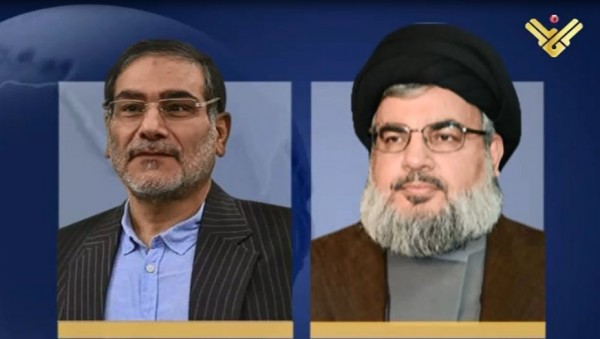
Rear Admiral Ali Shamkhani, Iran’s Secretary of Supreme National Security Council, condemned the decision made by the Arabian Gulf Cooperation Council and the Arab League for labeling Hezbollah as a terrorist organization, saying “Hezbollah has had a fundamental role in defeating terrorist groups in Syria and maintaining security in Lebanon. ”
He added: ” Its widespread popularity in the Muslim world and Arab countries has infuriated the Zionist regime and its mercenaries.”
Once lauded in the Arab world as a heroic resistance movement that stood up to Israel, Hezbollah has seen its popularity plummet in Lebanon and among Sunni Muslims worldwide because of its military support for Syrian President Bashar Assad and for interference in the internal affairs of several Arab countries.
Several observers are of the opinion that Hezbollah has ceased being a resistance movement and is behaving as as a mercenary army acting on orders by Iran.
Lebanon has been without a president since May 2014 when Michel Salesman’s term ended, but the powerful Iranian backed Hezbollah has been preventing the parliament from electing a new president.
Russia’s move
Commenting on President Vladimir Putin’s order for withdrawing from Syria Shamkhani stressed that this was by no means a ‘surprise move’, adding “fighting terrorism has not stopped. The Syrian Army’s advances in regions seized by terrorists will continue with military advices from Iran and Russia, within a common framework.”
President Vladimir Putin ordered the start of pullout of Russian military from Syria on Monday, saying Russia’s objectives had been “generally accomplished” after nearly six months of air campaign to fight the terrorist groups. The Russian warplanes left on Tuesday in accordance with Putin’s order.
Shamkhani went on to add, “the weakening of Syria’s establishment was, from the start, an American/Zionist plan for weakening resistance in the region, which a number of regional countries supported. It had nothing to do with democracy.”
“All terrorist groups and their various forms must be confronted with, as granting them political legitimacy will only lead to the establishment of terrorism in the region and its dangerous consequences will also fall upon Europe and other neighboring countries,” he said.
Iran and Syrian regime refer to the rebels trying to oust the Syrian regime as terrorists
Arab league
On March 11, the council of Arab foreign ministers declared Hezbollah a “terrorist” group, after Arab Gulf adopted the same stance amid Iranian-Saudi tensions in the region. Lebanon and Iraq expressed reservations over the resolution.
The move came a month after Riyadh cut ties with Tehran following demonstrations in which its embassy and a consulate were torched, in the wake of the Saudi execution of a pro Iran Shiite dissident cleric.
The Arab resolution denounced “Iranian interference” in the “internal affairs” of Arab countries. In January, GCC member Bahrain said it had dismantled a “terror” cell allegedly linked to Iran’s Revolutionary Guards and Hezbollah.
Saudi Arabia and fellow Gulf nations also accuse Iran of supporting Shiite rebels in Yemen, as well as attempting to destabilize their own regimes.
They also denounce its alliance with the Syrian regime and Hezbollah .
In February, Saudi Arabia suspended $4 billion grant for military supplies to Lebanon in protest against Hezbollah. Announcing the funding cut, a Saudi official said at the time that the kingdom noticed “hostile Lebanese positions resulting from the stranglehold of Hezbollah on the state.”
Iran sending commandos
A senior army commander said in Tehran on Wednesday that Iran plans to deploy commandos and snipers in Iraq and Syria as military advisors. “At some point we might decide to use our commandos and snipers as military advisors in Iraq and Syria,” Deputy Chief Liaison of the Army’s Ground Force General Ali Arasteh told reporters.
He said the first group of commandos and snipers are being trained for the purpose and they might be deputed to Iraq and Syria in the near future.

Leave a Reply
You must be logged in to post a comment.